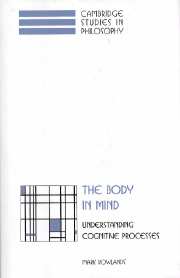Book contents
2 - Introduction to Part I: ‘Don't work hard, work smart’
Published online by Cambridge University Press: 03 December 2009
Summary
William of Occam is, of course, famous for his razor: a methodological injunction against multiplying entities beyond necessity. We might imagine, however, that if the great medieval logician had, perhaps, been of a less industrious nature, he might have ended up with another principle: ‘Don't multiply effort beyond necessity.’ And this prohibition has a well-known modern formulation: ‘Don't work hard, work smart!’ This slogan, I shall argue, is not, at least not in essence, a psychological crutch for those of shiftless character or slothful intent (although it certainly can be this too). Rather, the slogan, in fact, captures a fundamental principle of the natural world; one which has profound implications for the development of all living things. And one way of looking at this book is as an attempt to work out (some of) the consequences of this principle.
To be a little more precise, the following principle seems incontrovertible. Let us suppose you are faced with a given task that you are required to accomplish. And suppose the successful completion of this task requires that a certain amount of work be invested in it. Now, if you can get someone – or something – else to do part of this work for you, you will have correspondingly less to do yourself. At least, you will have less to do yourself as long as the work you do in getting this someone or something else to do the work for you is less than the work they then do for you. This principle is, of course, so obvious as scarcely to be deniable. Nevertheless, its ramifications are enormous.
- Type
- Chapter
- Information
- The Body in MindUnderstanding Cognitive Processes, pp. 21 - 30Publisher: Cambridge University PressPrint publication year: 1999

